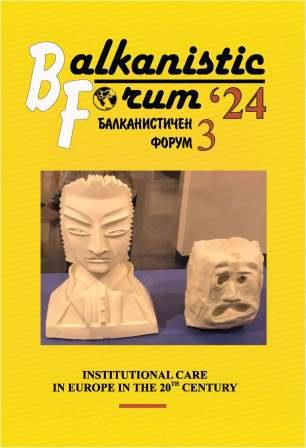Aging and Institutional Care During Late Socialism: The Case of the Elderly People’s Home in the Village of Pelishat, Bulgaria
Aging and Institutional Care During Late Socialism: The Case of the Elderly People’s Home in the Village of Pelishat, Bulgaria
Author(s): Denitsa NenchevaSubject(s): History, Anthropology, Social Sciences, Sociology, Social history, Recent History (1900 till today), Special Historiographies:, Cultural Anthropology / Ethnology, Health and medicine and law, Welfare services, Cold-War History
Published by: ЮГОЗАПАДЕН УНИВЕРСИТЕТ »НЕОФИТ РИЛСКИ«
Keywords: ageing; nursing home; social services; institutional care; Late socialism
Summary/Abstract: This paper will discuss the problem of the institutionalization of care for the elderly during the period of late socialism in Bulgaria. I will examine a specific case – that of the Elderly People’s Home in the village of Pelishat (Pleven Province), whose development follows the trajectory of displacement to spatial and social peripheries, typical of similar institutions. For this purpose, I will analyze a set of archival documents dating from the second half of the 1960s until the end of the 1980s. The analysis will take into account the socio-historical context of the practical and ideological role of (institutionalized) social care, as well as the government’s attempts to deal with factors such as the (negative) demographic trends in the country at that time and the deepening discrepancies between the official image of universal modernization of Bulgarian society and the economics of shortage.The main focus of the text however, falls on the dynamic interplay of care and medicalization, and the ideological construction of the everyday life space of the residents who find themselves in a situation of shared accommodation (in dormitory), medical interventions and the auxiliary e conomy of the home. These aspects of life are usually normalized through categories such as “medical services”, “culturtherapy”, “personal hygiene”, “living conditions”, “labor activity” and others. The analysis of the ideological framing of institutional life can help trace the implicit and explicit discourses and set of disciplining techniques aimed at the facility residents and staff, as well as study the traces of successful adoption of or failure to follow the Party’s official line.
Journal: Балканистичен Форум
- Issue Year: 33/2024
- Issue No: 3
- Page Range: 264-292
- Page Count: 29
- Language: English

